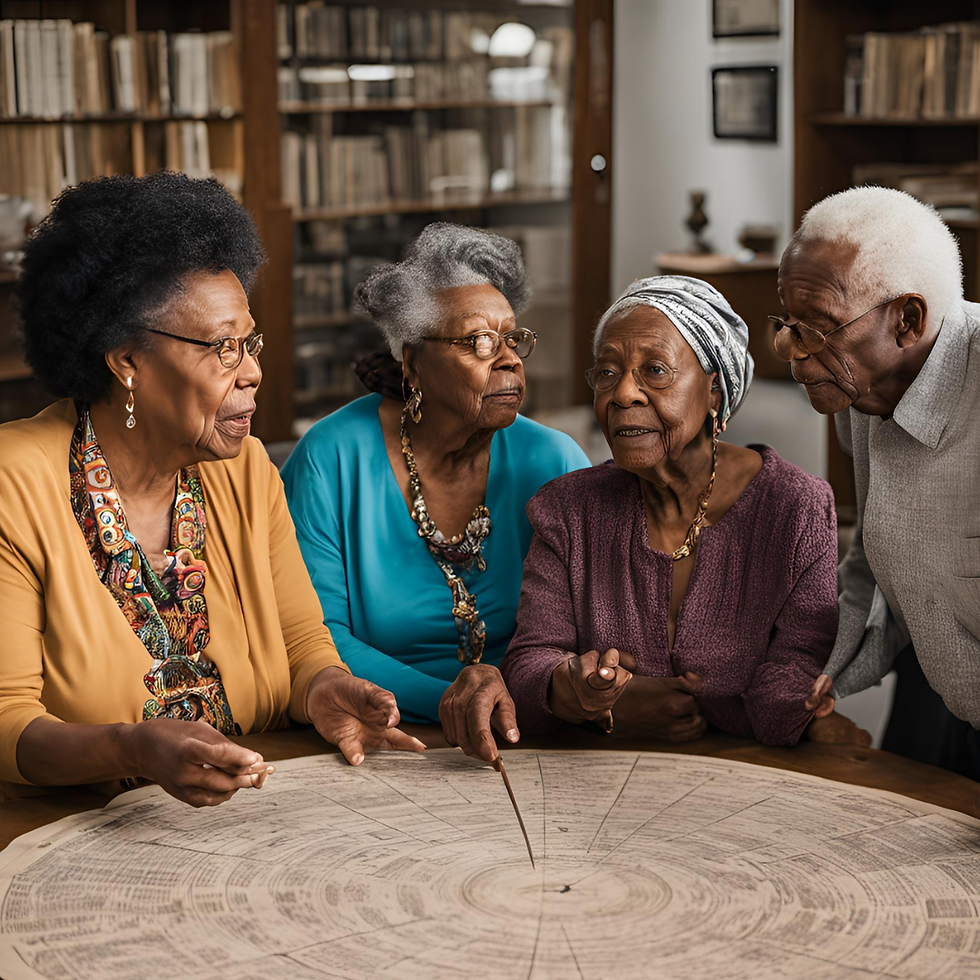How AI Can Enhance Family History Research: Introducing Claude
- Lisa Beal
- Aug 4, 2024
- 3 min read
As genealogists, we're always seeking tools to uncover our family's past and bring ancestral stories to life. Artificial Intelligence (AI) may sound new, but it's simply the next generation of technological advancements. We've been using AI tools in research for some time to enhance, streamline, and process information. Think OCR digitization, facial recognition in photography, and predictive modeling that suggests family connections (like Ancestry ThruLines®).
Language models are a type of AI tool that specializes in understanding and generating human language. While there are dozens available, you may be most familiar with ChatGPT, Claude, and Co-pilot. AAHGS member Robyn N. Smith demonstrated these for AAHGS in April 2024. These groundbreaking AI assistants are changing the game for family history enthusiasts. I use Claude and I'm particularly excited to explore its benefits for my research. Just for fun, I generated an image of my Claude using the free AI image generator on Canva.

Claude excels at analyzing vast amounts of data, making connections, and providing insights that might elude even the most diligent researcher. For African American families facing the unique challenges of tracing lineages through slavery, Reconstruction, and the Great Migration, Claude's analytical capabilities can be especially valuable.
One of Claude's most impressive features is its ability to generate narratives based on historical facts and family information. I was blown away by the results of inputting fragments of my enslaved ancestors' journey from Mississippi to Virginia just before the Civil War ended, and watching as Claude wove a compelling tale that brought their experiences to life. I use Claude as a tool to start organizing my research and building context into my narratives. While Claude is not conducting research, and AI-generated information should always be fact-checked, it can serve as an inspiring starting point for your family's narrative. This can be especially helpful when you have an overwhelming amount of information to process.
For older genealogists who have spent decades poring over microfilm and dusty archives, Claude can be a valuable assistant, helping to digitize and organize their wealth of knowledge. It can also bridge the generational gap, allowing older researchers to collaborate more easily with younger family members on family history projects. The beauty of Claude is that you can ask it the same question multiple times or slight variations, and it will never get frustrated or impatient.

Claude can assist with technical aspects of genealogy that are particularly relevant to African American research. Need help interpreting Freedmen's Bureau records or understanding the nuances of slave schedules? Claude can provide context and explanations in plain language. Struggling to trace family lines before 1870? Claude can suggest alternative research strategies and lesser-known resources specific to African American genealogy in the state or county you're interested in.
For African American researchers dealing with surname changes, Claude can assist in identifying patterns and potential name variations to explore. It can also help in analyzing DNA results, which can be particularly complex for African Americans.
As with any tool, it's important to use Claude responsibly. Always verify information against primary sources and remember that AI, while powerful, is not infallible. Claude should be seen as a complement to traditional research methods, not a replacement.
In conclusion, Claude represents an exciting development in genealogy research, with particular promise for African American family historians. By leveraging its analytical power and narrative capabilities, we can overcome some of the unique obstacles in African American genealogy, delve deeper into our family histories, and create richer, more engaging stories about our ancestors. As we continue to explore the possibilities of AI in genealogy, one thing is clear: the future of family history research and storytelling is looking brighter than ever.



Comments